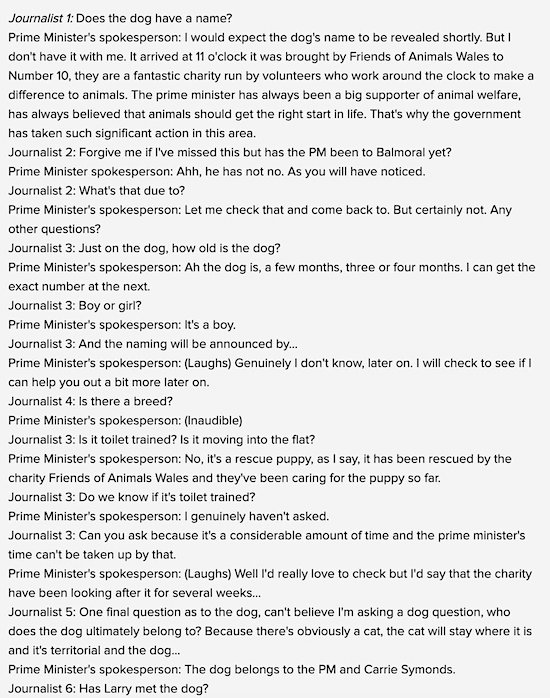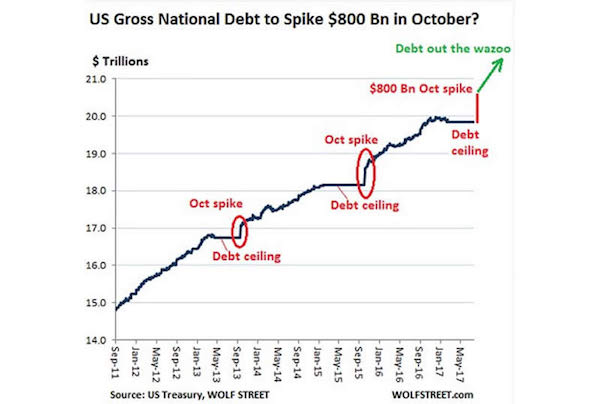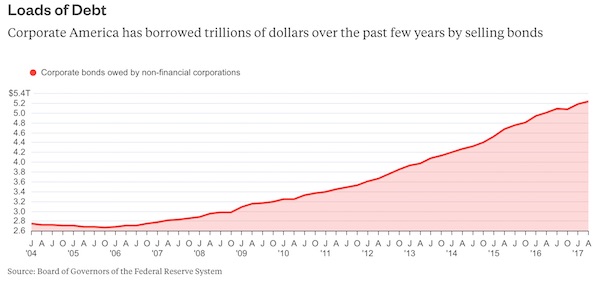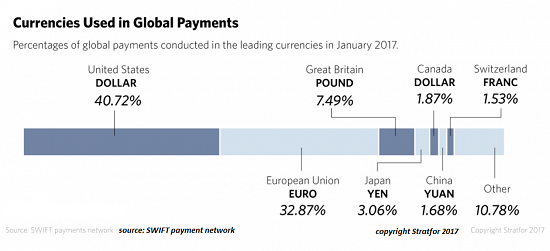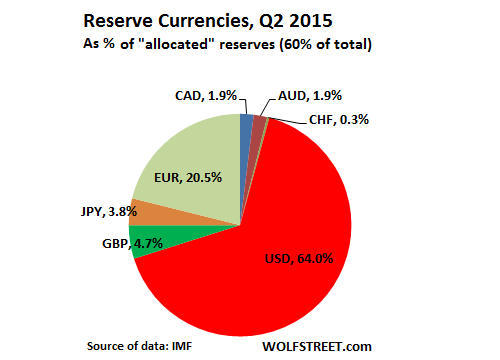
Pablo Picasso Head of a woman 1939

Lovely from Dmitry. Do read the whole thing. What the US must do to save its economy is imitate China.
• Resurrecting the American Economy With Stalinism 2.0 (Dmitry Orlov)
Donald Trump has recently ordered US corporations to move production out of China and into the US. Easier said than done!—or, rather, undone. Moving production to China (and, in case of IT, to India) allowed US corporations to benefit from the large wage differential and an easier regulatory environment in order to be more profitable. They spent these excess profits by buying back their own stock, paying generous dividends to their shareholders and using their artificially inflated stock prices to justify exorbitant executive salaries and bonuses.
Along the way, they impoverished American workers by depriving them of gainful deployment, eroded the skill base of the American population and, perhaps most importantly, destroyed demand for their products because more and more Americans could no longer afford them. As these trends played out, making China prosperous and the US increasingly distressed and impoverished, with close to 100 million working-age people permanently jobless, US corporations could no longer profit from their offshored production to the same extent, and so they took advantage of low interest rates to borrow huge sums of money and use it to continue buying back their own shares, paying dividends and continuing with the exorbitant executive compensation.
By now, many of the major US corporations are financial zombies, waiting for an uptick in interest rates to drive them into bankruptcy. And it is these zombies that are being tasked with bringing production back to the US. Good luck with that! Which is to say, it is highly unlikely that such an effort could possibly succeed. But even if it could succeed, would it solve the problem—which is that the US is gradually degenerating into a bankrupt third world country? Perhaps not, because, you see, the entire theory of “making America great again” is based on a fallacy—which is that China became the world’s largest economy (by purchasing power) and the world’s factory simply by virtue of the fact that American corporations offshored production to it.

The webs we weave…
• Use Old Chinese Debt To Default On Beijing’s $1 Trillion Treasuries (RT)
[..] the trade war adversaries are already considering options beyond tariffs. Beijing, which enjoys a trade surplus with the US, has hinted it could use rare earth metals as a leverage. There is also China’s “nuclear” option of dumping US Treasuries. Meanwhile, Washington has been reminded of China’s century-old bonds incurred before the nation adopted communism, which, adjusted for inflation, interest and other fees, amount to around $1 trillion, perfectly covering Beijing’s holdings of US Treasury Bills. “The US will simply default on $1 trillion of UST bonds held by China and claim, based on these old bonds, that they are justified in doing so,” Max Keiser, the host of RT’s Keiser Report, said.
While it’s really doubtful that China would ever pay out, the US’ attempt to claim the money would only trigger serious economic problems and make the already turbulent situation worse, investment guru Jim Rogers told RT. “If America gets a ruling that they [China] must pay then what America would do is freeze Chinese assets in America… take those assets or seize those assets. And then you have a very serious trade war going on,” Rogers said, adding that China would certainly retaliate to such a move. The individual holders of the antique bonds can do little to get any money from China, which has never recognized the debt. Firstly, they would have to have their claim recognized, win the case, and then find some way to force China to cash out, according to Duke University professor Mitu Gulati. However, it would be a completely different story if the Trump administration steps in.

How does he feel about Bitcoin?
• ECB Official Mersch Calls Facebook’s Libra ‘Treacherous’ (MW)
A high-ranking European Central Bank official on Monday outlined problems with the planned cryptocurrency Libra, the latest in a series of warnings from government officials. “I sincerely hope that the people of Europe will not be tempted to leave behind the safety and soundness of established payment solutions and channels in favor of the beguiling but treacherous promises of Facebook’s siren call,” said Yves Mersch, a member of the ECB’s executive board.
In a speech at a Frankfurt legal conference, he wryly noted that Libra was coming from “the very same people who had to explain themselves in front of legislators in the United States and the European Union on the threats to our democracies resulting from their handling of personal data on their social media platform,” a reference to Facebook. One concern Mersch raised is that the Libra coins will be issued by a cartel of players in the fields of payments, technology, e-commerce and telecommunications. Called the Libra Association, it will control the blockchain and collect the seigniorage income. Libra Association members include Mastercard, PayPal, eBay, and Uber.
“With such a setup, it is difficult to discern the foundational promises of decentralization and disintermediation normally associated with cryptocurrencies and other digital currencies. On the contrary, similarly to public money, Libra will actually be highly centralized, with Facebook and its partners acting as quasi-sovereign issuers of currency,” he said. Public money also is centralized, but unlike Libra, has a “sovereign entity and a central issuance authority.” The corporate entities, by contrast, are accountable to their shareholders and will “get privileged access to private data that they can abusively monetize.”

More than one. Chaos galore.
• Boris Johnson Faces Showdown In Parliament (BBC)
Boris Johnson faces a showdown in Parliament later after No 10 officials warned he would call for a snap general election on 14 October if MPs succeed in seizing control of Commons business. Rebel Tories and Labour MPs are planning a bill to stop the UK leaving the EU on 31 October without a deal. Mr Johnson said he did not want an election, but progress with the EU would be “impossible” if the MPs win. Jeremy Corbyn said the Labour Party was ready for a general election. But shadow Northern Ireland secretary Tony Lloyd later said Labour would vote against any government plans to hold a general election before the UK is due to leave the EU on 31 October.
He said Labour “will not have Boris Johnson dictate the terms of an election that crashes this country out with no deal”. Under the Fixed-term Parliaments Act, Mr Johnson would require the backing of two-thirds of the UK’s 650 MPs to trigger a poll in the autumn. A number of MPs have come together across party political lines in a fresh bid to stop a no-deal Brexit, after Mr Johnson vowed to leave the EU with or without a deal on 31 October. When Parliament returns on Tuesday after recess, they are expected to put forward legislation under Standing Order 24 – a rule that allows urgent debates to be heard.

Rogers was the Permanent Representative of the United Kingdom to the European Union from 4 November 2013 until 3 January 2017.
• The Realities Of A No-Deal Brexit (Ivan Rogers)
No developed country has taken itself out of a trade bloc since the war because the costs of deliberately making trade substantially more difficult with your closest neighbours are obviously large. No trade deal has ever been struck between partners actively seeking to get further apart. Trade deals have always been between those aspiring to converge and to increase trade flows, not diverge and decrease them. No amount of repetition of ‘this will all be terribly easy’ ever makes it true. It is not unpatriotic or ‘declinist’ to point out that a process of ‘differential disentanglement’ – which is actually what Brexit is – will be hard, complex and lengthy. How, seriously, after more than three years can so much of our political elite still be in denial on this?
If you leave a club whose other members are prepared to integrate more deeply politically and juridically than you, because they see economic and political benefits from doing so, you cannot tell the public that any adverse consequences of leaving are all the club’s fault, for wilfully not carrying on giving you club benefits when you leave. Nor can you just wish away issues at borders, whether on land or cross-Channel, when the entire purpose of leaving the Single Market and Customs Union must be to run deliberately different regulatory regimes – chosen by your own Parliament – where you believe it suits you. Such choices by definition entail a hard border. Borders across the whole world demarcate different regulatory regimes.
Even the border between Sweden and Norway, one in the EU, the other out of it but wanting to remain much closer ‘in’ to EU institutional and legal frameworks (Single Market, Schengen) than our government, is a hard border. If alternative arrangements currently existed which obviated the need for any such border, they would already be operating right there. They are not.

“Another contraction in the current quarter would officially herald a recession.”
• Ahead of Brexit, UK Factories Go Quiet (R.)
British manufacturing contracted last month at the fastest rate in seven years, rocked by the deepening Brexit crisis and the global downturn, boding poorly for the chances of an economic rebound in the third quarter, a survey showed on Monday. The IHS Markit/CIPS UK Manufacturing Purchasing Managers’ Index (PMI) fell to 47.4 from 48.0 in July, a full point lower than the median forecast in a Reuters poll of economists and well below the 50 dividing line for growth and contraction.
Only German manufacturing fared worse among the national PMIs produced for Europe by data company IHS Markit. “The big picture is that manufacturing is on track to contract for a second consecutive quarter, and a meaningful recovery is unlikely given the ongoing struggles of global manufacturing,” Andrew Wishart, UK economist at consultancy Capital Economics, said. Britain’s overall economy shrank in the second quarter too, a hangover from the stockpiling boom in advance of the original March Brexit deadline. Another contraction in the current quarter would officially herald a recession.

What she said in private…
• Hong Kong Leader Says She Would ‘Quit’ If She Could (R.)
Embattled Hong Kong leader Carrie Lam said she has caused “unforgivable havoc” by igniting the political crisis engulfing the city and would quit if she had a choice, according to an audio recording of remarks she made last week to a group of businesspeople. At the closed-door meeting, Lam told the group that she now has “very limited” room to resolve the crisis because the unrest has become a national security and sovereignty issue for China amid rising tensions with the United States. “If I have a choice,” she said, speaking in English, “the first thing is to quit, having made a deep apology.”
Lam’s dramatic and at times anguished remarks offer the clearest view yet into the thinking of the Chinese leadership as it navigates the unrest in Hong Kong, the biggest political crisis to grip the country since the Tiananmen Square protests of 1989. Hong Kong has been convulsed by sometimes violent protests and mass demonstrations since June, in response to a proposed law by Lam’s administration that would allow people suspected of crimes on the mainland to be extradited to face trial in Chinese courts. The law has been shelved, but Lam has been unable to end the upheaval. Protesters have expanded their demands to include complete withdrawal of the proposal, a concession her administration has so far refused. Large demonstrations wracked the city again over the weekend.
Lam suggested that Beijing had not yet reached a turning point. She said Beijing had not imposed any deadline for ending the crisis ahead of National Day celebrations scheduled for October 1. And she said China had “absolutely no plan” to deploy People’s Liberation Army troops on Hong Kong streets. World leaders have been closely watching whether China will send in the military to quell the protests, as it did a generation ago in the bloody Tiananmen crackdown in Beijing. Lam noted, however, that she had few options once an issue had been elevated “to a national level,” a reference to the leadership in Beijing, “to a sort of sovereignty and security level, let alone in the midst of this sort of unprecedented tension between the two big economies in the world.”

… and now denies in public.
• Carrie Lam: Hong Kong Leader ‘Never Tendered Resignation To Beijing’ (BBC)
Hong Kong leader Carrie Lam has denied ever offering to resign, after audio was leaked of her saying she would if she could. Yesterday a recording of a private meeting emerged where she is heard saying: “If I have a choice, the first thing is to quit.” On Tuesday she said she had “never tendered any resignation”, but did not deny the authenticity of the recording. [..] The audio, published by Reuters on Monday, was recorded at a private meeting of business leaders that Ms Lam attended last week. In it she is heard blaming herself for igniting the territory’s political crisis, saying it was unforgiveable of her to have caused such huge havoc. “If I have a choice, the first thing is to quit, having made a deep apology, is to step down,” the voice on the tape says.
[..] She also says in the recording that China does not have a deadline by which it wants to solve the crisis in Hong Kong, and that Chinese authorities would not send in troops to end the protests. At a weekly press conference, Ms Lam was asked about the leaked audio. She said it was “totally unacceptable” that her remarks made in private had been recorded and passed to the media. “I have never tendered a resignation to the Central People’s Government,” the chief executive told reporters. “I have not even contemplated to discuss a resignation with the Central People’s Government.” “The choice of not resigning is my own choice,” she said, insisting she wanted “to help Hong Kong in a very difficult situation and to serve the people of Hong Kong”.

“..the RussiaGate ploy alerted Americans that there truly is a Deep State with its own self-winding agenda.”
Cue the rise of the redistributionists, that is, the people who want the government to determine who gets what and where to get it. Or, shall we say, who to take it from. Elizabeth Warren is leading the pack for now — the Oklahoma once-Republican grandma turned Leon Trotsky wannabe. I’ll give her this: she’s a helluva cheerleader. And she’s energetic for an old broad, prancing around the stage in her spandex yoga pants, arms akimbo, head vibrating. I wonder, though, whether voters (those aforesaid citizens) will remember that she vowed to give free health care to border-jumpers. Or that she pretended to be a Cherokee for career advancement at snooty Harvard. A rowdy-dowdy financial smash-up will tarnish the Trump MAGA brand for sure.
But will the Golden Golem of Greatness simply stew in the oval office or try some desperate new stunts to salvage his quixotic political career? And will his shaky marriage with the Republican Party veer into divorce court, with the party turning to a steadier and more conventional figure in the coming election year? They’ll get beat anyway as economic depression mounts, but they’ll save face in defeat. That is, if Mr. Trump manages to not start World War Three in the meantime. Odious as he is to many, history will record one salutary effect of his term in office: the RussiaGate ploy alerted Americans that there truly is a Deep State with its own self-winding agenda. A few perp-walks upcoming may have a chastening effect on future Swamp critters entertaining a higher calling, as the slippery James Comey put it — meaning, using the powerful machinery of government for your own purposes.

Can’t find any of his accomplices, can we?
• Jeffrey Epstein’s Model-Scouting Pal Has ‘Disappeared Without A Trace’ (NYP)
The model agency boss accused of scouting young girls for pedophile pal Jeffrey Epstein has disappeared like a “ghost,” as investigators scour the globe searching for him, a new report said. French authorities want to quiz Jean-Luc Brunel, 72, over his ties to Epstein as part of their own probe into the late financier who had a house in Paris, according to the Daily Mirror. “He is a ghost who has disappeared without a trace,” a legal source in Paris told the paper of Brunel, who discovered some of the biggest names in modeling, including Christy Turlington and Angie Everhardt. Investigators have made inquiries throughout the US and Europe, as well as Brazil, where the Frenchman was seen looking for girls just three months before Epstein, 66, was arrested, the paper says. “There is no address for him, all his internet accounts, including social media, have been wiped out. He is uncontactable,” the source told the Mirror.

Sounds crazy: Boeing simply doesn’t answer questions.
• New Delays Could Keep Boeing 737 MAX Grounded Into Holiday Travel Season (MW)
Friction between Boeing and international air-safety authorities threatens a new delay in bringing the grounded 737 MAX fleet back into service, according to government and pilot union officials briefed on the matter. The latest complication in the long-running saga, these officials said, stems from a Boeing briefing in August that was cut short by regulators from the U.S., Europe, Brazil and elsewhere, who complained that the plane maker had failed to provide technical details and answer specific questions about modifications in the operation of MAX flight-control computers.
Boeing as a result now has to resubmit briefing documents describing proposed software changes, these people said. The changes then have to be vetted by the U.S. Federal Aviation Administration before a follow-up meeting with the same participants can be held and crucial simulator and flight tests of the final software revisions scheduled. The upshot, the people said, is likely to be several more weeks of delay that could significantly reduce the likelihood that many of the planes would be back flying passengers in North America during the Christmas holidays, as Boeing and some U.S. carriers have publicly projected. The meetings and the fallout haven’t been reported before.

At the Roger Waters performance of Wish You Were Here last night.
• All Of Us Are In Danger: John Pilger Has Chilling Warning From Assange (RT)
Journalist John Pilger has delivered a stark warning from WikiLeaks co-founder Julian Assange, who said that his persecution is intended to kill dissent. “Speak up now,” Pilger said, or face “the silence of a new kind of tyranny.” Assange is currently serving a 50 week sentence in Belmarsh Prison for skipping a bail hearing in 2012. US authorities are seeking his extradition for his role in publishing classified documents, accusing him of espionage. Speaking at a rally outside the Home Office in London on Monday, Pilger passed on a message from the WikiLeaks editor who, if extradited and convicted, could be sentenced to 175 years in prison.
It’s not just me. It’s much wider. It’s all of us. It’s all journalists, and all publishers who do their job who are in danger.
“The danger Julian Assange faces can easily spread to the present and past editors of the Guardian, the New York Times, Der Spiegel, El Pais in Spain, the Sydney Morning Herald, and many other newspapers and media outlets that published the WikiLeaks revelations about the lies and crimes of our governments,” Pilger continued. “By defending Julian Assange we defend our most sacred rights,” Pilger warned. “Speak up now or wake up one morning to the silence of a new kind of tyranny.”
VIDEO: Pink Floyd’s Roger Waters performs ‘Wish You Were Here’ outside the UK Home Office in support of WikiLeaks founder Julian Assange @Ruptly pic.twitter.com/4fHFZsKCyY
— Barnaby Nerberka (@barnabynerberka) September 2, 2019

In these difficult times, the UK press asks the hard-hitting questions:
